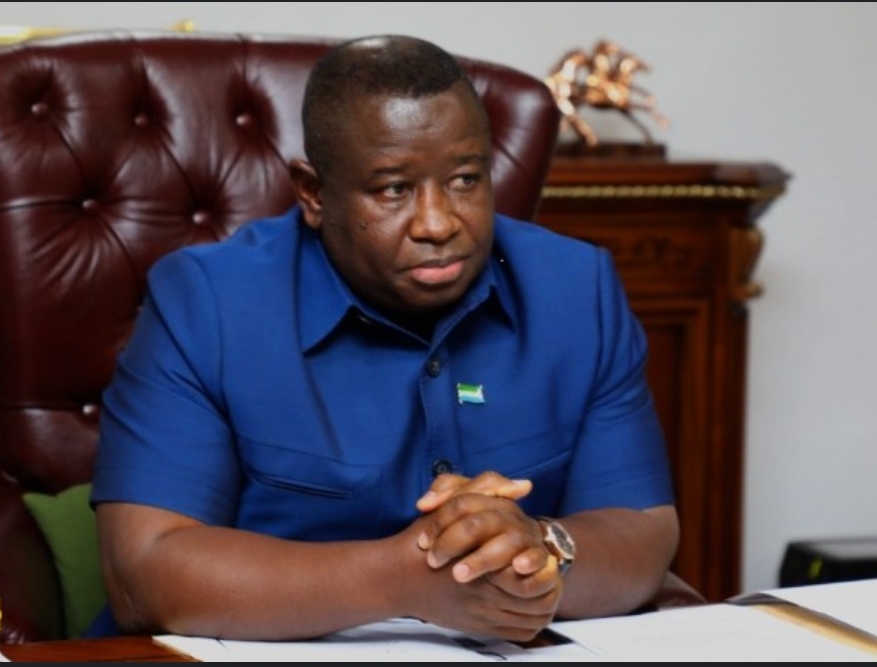
NO PR SYSTEM IN 2028
…Over 60% Declare
By Ibrahim Alusine Kamara (Kamalo)
The Proportional Representation (PR) system imposed in Sierra Leone’s 2023 elections has been overwhelmingly rejected by the people. In a landmark two-day national dialogue convened by the National Election Watch (NEW) in collaboration with the Inter-Religious Council of Sierra Leone, opposition parties, trade unions, community organizations, the media, and professional bodies, the verdict was unambiguous: Sierra Leoneans want PR scrapped and the First-Past-The-Post (FPTP) system restored.
The dialogue, held on June 11th and 12th, 2025, at the Bank of Sierra Leone Complex in Freetown, focused on Recommendation 78 of the Tripartite Committee Report, which addressed electoral systems and management. After extensive deliberation, 57.9% of participants backed FPTP, 31.6% favored a hybrid system, and only 10.5% supported PR.
PR System Condemned as a Democratic Failure
PR was branded a catastrophic failure by civil society leaders, religious authorities, opposition parties, and ordinary citizens alike. The system was criticized for stripping voters of direct representation, handing unchecked power to party elites, and disconnecting MPs from their constituents.
The Inter-Religious Council and opposition leaders accused the government of imposing PR without meaningful public consultation, describing it as a betrayal of democratic principles. Ward Committees, crucial for local governance, remain non-functional under PR, deepening the disconnect between citizens and decision-makers.
“This system alienates the people, undermines accountability, and empowers a few party bosses at the expense of democracy,” one opposition leader told the forum. “Sierra Leone cannot accept this any longer.”
FPTP Emerges as the People’s Choice
Supporters of FPTP praised its clarity, simplicity, and accountability. The system allows voters to directly choose their representatives, produces transparent and verifiable results, and ensures leaders remain answerable to the electorate rather than to party hierarchies.
“FPTP returns power to the people — not hidden party rooms,” said a civil society activist. “It is the system that restores trust in our democracy.”
Limited Support for PR Reforms
While PR’s defenders suggested reforms — such as open-list constituency-based representation, lower thresholds for seat allocation, and greater inclusion of women, youth, and persons with disabilities — these proposals failed to sway the overwhelming majority. Some also proposed a hybrid system, combining FPTP for presidential, mayoral, and council elections with a refined PR for parliamentary representation.
Urgent Call for Reform
The coalition’s communiqué to the government was explicit: the Attorney-General and Minister of Justice must urgently design an electoral system that is simple, transparent, and inclusive. Key demands include:
At least 30% representation for women, per the Gender Equality and Women’s Empowerment Act.
Fair competition for independent candidates and smaller parties.
Voter authority over candidate selection, not party elites.
Transparent and verifiable electoral results to restore public trust.
The People Have Spoken
The dialogue sent a loud, unified message: PR has no place in Sierra Leone’s democracy. Civil society, religious leaders, opposition parties, and citizens have come together in a rare alliance to demand direct representation, accountability, and transparency.
“The people have spoken — PR has failed,” said a trade union representative. “It is time to take back our democracy.”
With this unprecedented national consensus, the government now faces a clear choice: heed the people’s call and restore FPTP, or risk further eroding trust in Sierra Leone’s democratic institutions.